The St. Louis African American Community and the Exodusters
Copyright 2007 by The Curators of the University of Missouri
University of Missouri Press, Columbia, Missouri 65211
Printed and bound in the United States of America
All rights reserved
First paperback printing, 2021
Library of Congress Cataloging-in-Publication Data
Jack, Bryan M., 1969
The St. Louis African American community and the Exodusters / Bryan M. Jack.
p. cm.
Summary: A story of former slaves searching for their own promised land after the Civil War. Fleeing the South, and trying to reach Kansas, many became stranded in St. Louis. Jack tells how the citys African American community provided food, shelter, and funds to help the Exodusters complete their journeyProvided by publisher.
Includes bibliographical references and index.
ISBN: 978-0-8262-2237-4 (paperback : alk. paper)
ISBN: 978-0-8262-1772-1 (hard cover : alk. paper)
1. African AmericansMissouriSaint LouisHistory19th century. 2. FreedmenWest (U.S.)History19th century. 3. African American pioneersWest (U.S.)History19th century. 4. African AmericansMigrationsHistory19th century. 5. Migration, InternalUnited StatesHistory19th century. 6. African AmericansHistory18771964. 7. Saint Louis (Mo.)History19th century. 8. Community lifeMissouriSaint LouisHistory19th century. 9. Saint Louis (Mo.)Social conditions19th century. I. Title. II. Title: Saint Louis African American community and the Exodusters.
F474.S29N437 2007
977.8'6600496073dc22
2007039945

This paper meets the requirements of the American National Standard for Permanence of Paper for Printed Library Materials, Z39.48, 1984.
Designer: Stephanie Foley
Typefaces: Adobe Garamond and ITC Fenice
ISBN-13: 978-0-8262-6616-3 (electronic)
ACKNOWLEDGMENTS
This book began as a paper in a graduate class at Saint Louis University; it then grew to a dissertation, and finally into the book that you are holding. However, my interest in the Exodusters was formed in high school. My hometown of Parsons, Kansas, sits in the southeast corner of the state, not far from both the Missouri and Oklahoma state lines. A few years after its founding as a stop on the Missouri, Kansas and Texas railroad, Parsons became the first stop for many Exodusters from Texas. Many of these Exodusters stayed in the area, leading to a vibrant African American community in Parsons. The story of the Exodusters landing in Parsons was familiar to me as I was growing up; graduate school gave me the opportunity to explore the Exodusters from a slightly different angle. As my research began in earnest, I learned that St. Louis had played an important role in the movement and was an important story that had yet to be told. Although I havent lived in Parsons for nearly twenty years, I still feel a connection with the area and Im thankful that my research is related somewhat to my hometown.
No matter how solitary the pursuit of writing history might seem, no one does it alone. I first would like to thank everyone at the University of Missouri Press. Clair Willcox first saw the promise of the topic and was instrumental in guiding me through the process of proposing the manuscript. Beverly Jarrett, Jane Lago, and everyone else offered insightful suggestions that really improved the book. John Brenner was an insightful and effective editor. My research was also a result of help from a variety of sources. Thank you to the staffs at the following libraries: Saint Louis University, Washington University in St. Louis, the Jefferson Library and Mercantile Library at the University of MissouriSt. Louis, St. Louis Community College at Meramec, the University of Kansas, Winston-Salem State University, the University of North CarolinaGreensboro, St. Louis City Public Library, the Bancroft Library, and the University of North Carolina. Additionally, I would like to thank the staffs at the following research centers: the Missouri Historical Society, the State Historical Society of Missouri, the Kansas Historical Society, the Western Historical Manuscript Collection, University of MissouriSt. Louis, and the Library of Congress. I would also like to thank fellow scholars Lawrence Christensen, Quintard Taylor, Kimberly Phillips, and Diane Mutti-Burke for their comments; a better book resulted from their input. Thanks also go to Nell Irvin Painter and Heather Cox Richardson for their generosity in answering my questions.
I was fortunate to be taught by outstanding and caring professors throughout my life as a student and into my life as a historian. Karen Exon at Baker University has been a valuable mentor since my undergraduate days. Her personal touch epitomizes what Baker is all about. The American Studies faculty at the University of Alabama went out of their way to help me and every other new graduate student navigate the sometimes treacherous waters of academia. I especially want to thank Rich Megraw, who was my professor and mentor, and who I am proud to call my friend. It was Doc Megraw who convinced me that I could make a life as a historian, and he has been my model for everything that a professor should be. He taught me to take the subject of history seriously, without taking myself too seriously. At Saint Louis University, Shirley Loui took a chance on me, and for that I am forever grateful. Elizabeth Kolmer, Lawrence Barmann, and Matt Mancini were a dream dissertation committee. They were critical but encouraging, and were instrumental in guiding me through the ideas that would become the heart of this book. They each have the amazing ability to make each student feel like they are the most important student in the program, and I am proud to have graduated from the department. They continue to remain important voices in my life.
My colleagues in the Department of Social Sciences at Winston-Salem State University have been very encouraging. Our diverse department of historians, sociologists, psychologists, philosophers, geographers, political scientists, and gerontologists, although based in such widely varied disciplines, still manage to support each other in our various pursuits. Their words were always encouraging, and I thank them for picking up some of the slack when I was absorbed in finishing this project. I would also like to thank my students, who liked seeing me writing and researching as I was assigning them research and writing projects. They have been a continual source of energy, and kept me honest as they would ask when the book was going to be finished.
I have been privileged throughout my life to have close friends. Although most are outside the academic community, our relationships have helped me complete this project. JC, Lance, and Bill throughout twenty years of friendship have continually kept me laughing. Gooding, Billy, Jesse Rich, the BU brothers, Paula Savarino, Maureen Murphy, Rob Lee, Mark and Melinda Cisneros, Kenny and Linda Simpson, Greg Koch, Brian Simpson and Diane Pisacreta, Michael and Shawn Kim, Anand and Suj Palagiri, Ashok Palagiri, Doug and Shannon Gifford, Bubba and Daphne Flores, and Jennifer and Grant Patterson all have helped this project, whether they realize it or not.
My family has been incredibly supportive throughout my entire life in whatever I chose to do. My aunts, uncles, and cousins took an interest in my research and would even send me material when they found it; that kind of helpfulness and care is immeasurable. I feel so lucky to have been raised by my parents, Bill and Dee Jack. From them, I learned a love for history, a sense of place, and a respect for education. This couple who were married as teenagers without a penny to their names raised two educators and a judge; they were remarkable parents. I also feel fortunate that after my Mom passed away my Dad found Linda, a wonderful person and even better stepmother. My brother Jeffry and his wife, Susan, my sister Lori and her husband, Jon, always gave me freedom to be myself, but were always there to pick me up when I fell. They have proudly followed the progress of this project, as I have proudly followed their lives. Ive watched Amanda, Erin, Elyse, Alex, and Claire grow from babies to impressive young adults; Im excited to see what their futures hold. My in-laws, John and Vilma Phillips, Dominic Deyto, and Ninang and Dan Frey, generously made me a part of their family; thank you for everything. Finally, my wife, Jenny, a note card writer without peer, has lived with this project from the beginning and has never once complained about the times it has taken me away. Thank you for your love, patience, faith, and support. I sincerely could not have done it without you.


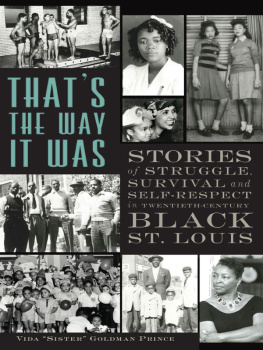
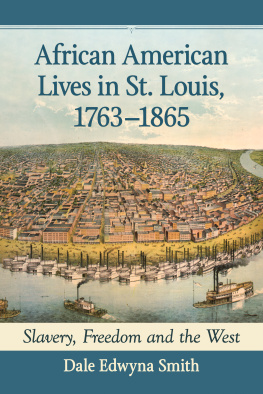
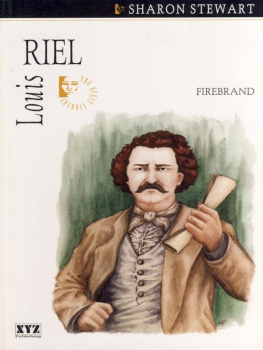
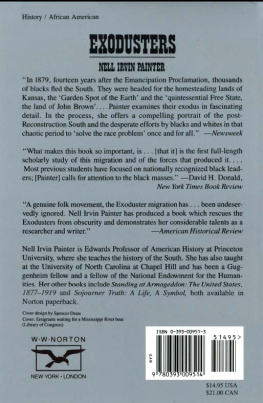
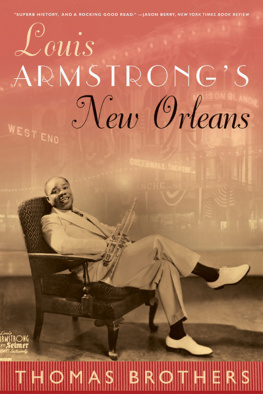
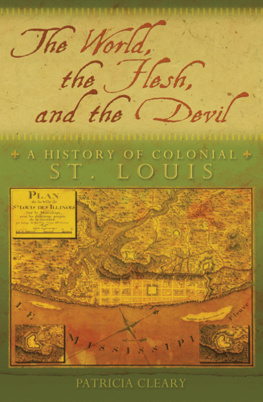
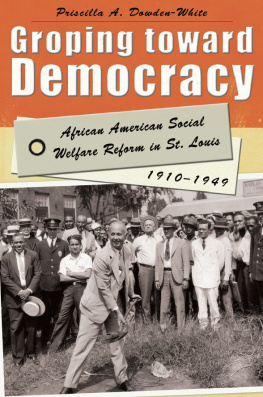


 This paper meets the requirements of the American National Standard for Permanence of Paper for Printed Library Materials, Z39.48, 1984.
This paper meets the requirements of the American National Standard for Permanence of Paper for Printed Library Materials, Z39.48, 1984.